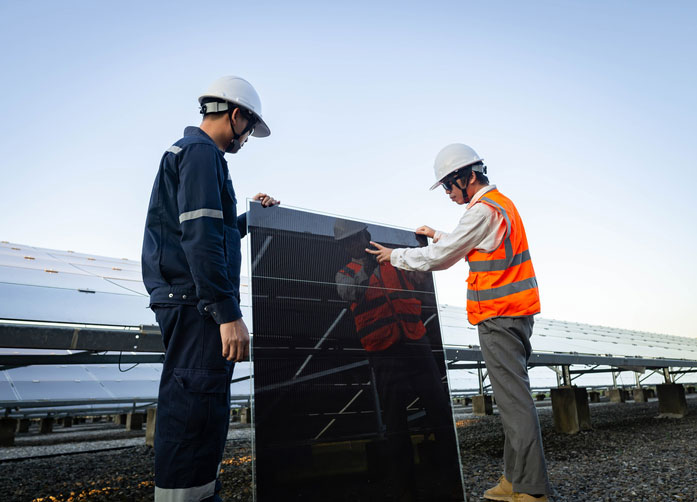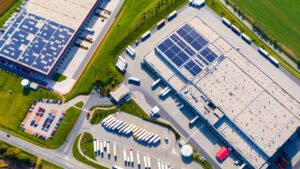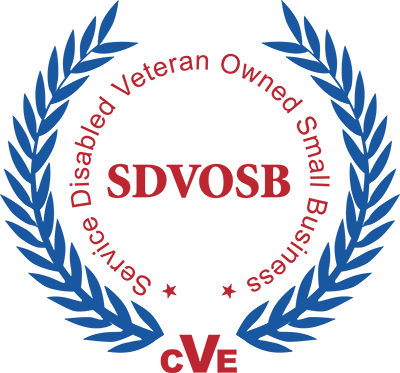Our last blog discussed the eight financial benefits of going solar, but knowing that solar panels can save money and boost your green credentials is not enough. Choosing the right solar panel solution is crucial for maximizing these benefits. Below are some key points every business should consider when transitioning to solar energy.
- Initial Investment: Just as you compare prices when purchasing any major asset, you need to assess the initial cost of the solar panel system. While high upfront costs may be a deterrent, remember the long-term savings (as discussed in our previous blog) and government incentives that can offset these expenses.
- Energy Requirements: What are your daily energy needs? Before going solar, understanding your energy consumption patterns can help you size your solar system appropriately. Overestimating can lead to an unnecessarily expensive system, while underestimating may not yield the cost savings you’re after.
- Type of Solar Panels: Not all solar panels are created equal. There are three main types: monocrystalline, polycrystalline, and thin-film. Each has its own pros and cons regarding efficiency, cost, and space requirements. Make sure to choose the type that best fits your business needs.
- Local Weather and Climate: Let’s face it: not every locale is as sunny as California. The efficiency of your solar panels can be affected by your local climate. Check the weather data and review Solar Resource Maps to see how many “solar hours” you can expect, which will impact your system’s performance.
- Orientation and Angle: The direction your solar panels face can significantly impact energy production. The angle at which they are installed also matters. An experienced installer can provide insights tailored to your property.
- Grid-Tied or Off-Grid: Do you want to remain connected to the electrical grid or become entirely self-sufficient? Both options have their merits. A grid-tied system allows you to sell excess electricity back to the grid, while an off-grid system requires battery storage but grants you complete energy independence.
- Maintenance: Like a car, solar panels require regular maintenance to ensure they run at peak performance. Consider maintenance costs and procedures when calculating the long-term investment.
- Permits and Regulations: Understand the local laws and regulations around installing solar panels. This includes zoning restrictions and building codes. Often, your solar provider can assist in navigating this bureaucratic maze.
- Warranty and Manufacturer: Always consider the manufacturer’s reputation and the warranty they offer. A more extended warranty period usually indicates better quality and durability, safeguarding your investment for years to come.
- Financing Options: Solar providers often offer various financing options, including loans, leases, and Power Purchase Agreements (PPAs). Understand the pros and cons of each to find the best financial arrangement for your situation.
By keeping these points in mind, you can make an informed decision on the best solar panel solution for your business. Remember, choosing solar is not just about the panels; it’s about choosing a sustainable, long-term energy strategy. If you want help deciding, call us or request to speak to a team solar expert to navigate the best option for your business.






